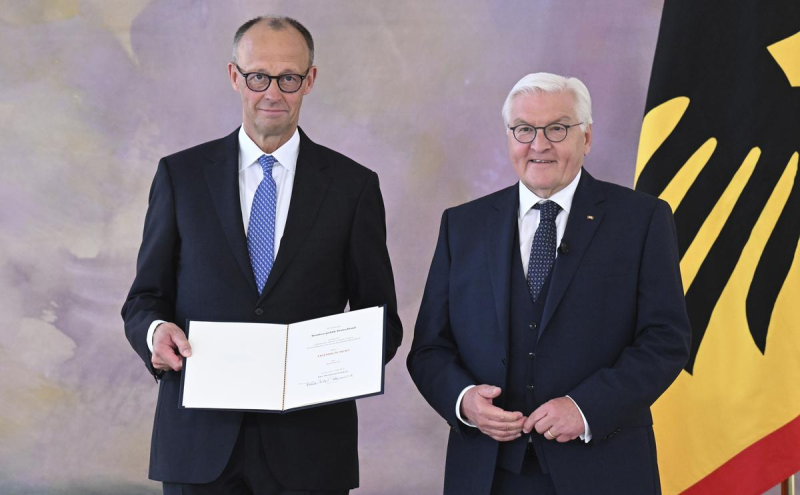- Puppet show enchants Children as Boi Mela comes alive on day 2 |
- DSCC Admin Salam’s drive to make South Dhaka a ‘clean city’ |
- 274 Taliban Dead, 55 Pakistan Troops Killed |
- Now 'open war' with Afghanistan after latest strikes |
- Dhaka's air quality fourth worst in world on Friday morning |
Merz Elected Chancellor of Germany After Close Setback

Friedrich Merz, leader of Germany’s conservative CDU/CSU alliance, was elected as the country’s new chancellor on Tuesday, securing an absolute majority of 325 votes to 289 in a nail-biting second parliamentary vote. His victory came after an initial setback, which raised concerns within his coalition, but he ultimately triumphed in a closely contested process.
Merz, 69, took over the leadership of Germany following the collapse of outgoing Chancellor Olaf Scholz’s government in November. President Frank-Walter Steinmeier appointed Merz as the 10th chancellor of post-war Germany.
“I accept this responsibility with humility but also with determination and confidence,” Merz said after the election. He also emphasized the importance of his centrist coalition, which includes the Social Democrats (SPD), in addressing pressing issues such as the economy and immigration.
On his first full day in office, Merz planned visits to France and Poland to strengthen Germany's ties with its European neighbors and present a united front amidst growing tensions with Russia and shifting dynamics due to U.S. leadership under President Donald Trump.
The newly elected chancellor expressed his commitment to strengthening Germany’s role in Europe and revitalizing the country’s economy, which has been under strain. He also voiced his intention to increase Germany's engagement in global issues, such as the ongoing conflict in Ukraine, and collaborate more closely with France and Britain.
Despite Merz’s win, his path to leadership was marked by challenges. In the first parliamentary vote, he fell just six votes short of securing an absolute majority, raising questions about the strength of his coalition support. However, analysts believe that Merz, known for his resilience, will overcome this initial hurdle.
Merz also condemned recent remarks from U.S. officials regarding Germany’s domestic political matters, urging the American government to refrain from interfering in Germany’s internal politics.
His victory marks the end of a six-month political power vacuum in Europe’s largest economy, with Merz now tasked with restoring stability and tackling key national and international challenges.

